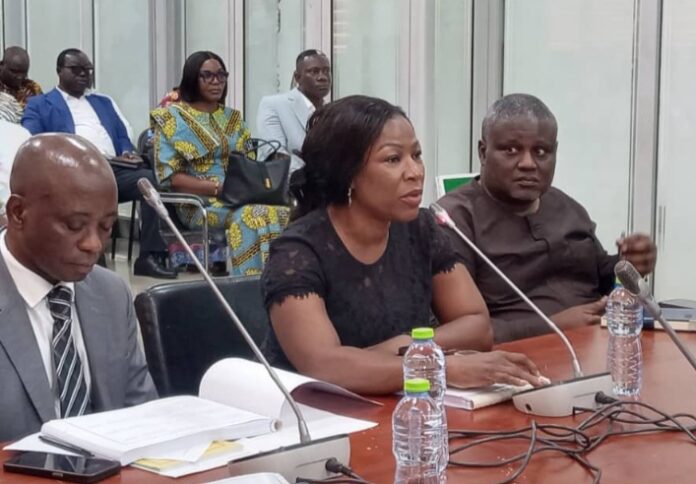The Deputy Minister of Health, Prof. Grace Ayensu, has assured that government is working towards procuring a Positron Emission Tomography (PET) scan machine for Ghana, describing it as vital for effective diagnosis and treatment of life-threatening diseases.
She gave the assurance on Monday, September 29, 2025, during a sitting of the Public Accounts Committee (PAC), chaired by Hon. Abena Osei Asare, which was considering the Auditor-General’s report on Ministries, Departments and Agencies for the 2024 financial year.
Raising the matter at the sitting, Mrs. Osei Asare appealed for urgent steps to be taken to secure the machine, pointing out that Ghana lagged behind other African countries such as Kenya, Nigeria and South Africa that already have PET scan facilities.
“Citizens are crying that sometimes, because of lack of this machine, doctors are not able to target exactly where diseased cells are located, and patients miss the right treatment they deserve,” the PAC Chair stressed.
Responding, Prof. Ayensu acknowledged the concerns, insisting that the PET scan would transform healthcare delivery if made available in public hospitals.
“Everything you said about the PET scan is important. Government is currently retooling our hospitals through the Ghana Medical Trust Fund. It’s not only about acquiring equipment, but also about ensuring we have the right maintenance agreements and skilled staff to operate them,” she explained.
She revealed that plans are underway to establish a biomedical engineering school at the University of Ghana to train local experts to manage such sophisticated machines.
“We don’t want a situation where we buy equipment and, once the warranty expires, they become useless. That is why we are focusing on both equipment and capacity,” she said.
The Deputy Minister added that while one PET scan is available privately in Ghana, it is costly for many citizens, hence the need for a public facility.
“We are hopeful that within the next three and a half years, Ghana will have its own public PET scan machine,” she pledged.
Stakeholders at the sitting welcomed the commitment, noting that public ownership of such technology would significantly cut costs and expand access for patients.


